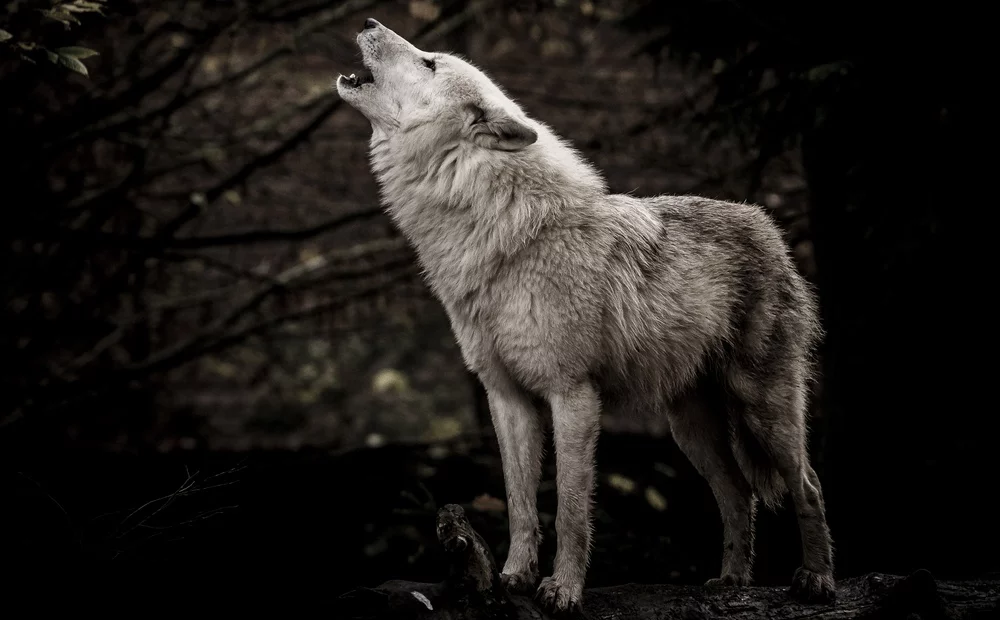MISSOULA, Mont. — Today, U.S. District Judge Donald Molloy in Montana vacated the U.S. Fish and Wildlife Service’s (FWS) decision refusing to restore Endangered Species Act (ESA) protections for gray wolves in the Western United States, siding with Animal Wellness Action, the Center for a Humane Economy, Project Coyote, Footloose Montana, the Gallatin Wildlife Association, and Kettle Range Conservation Group, as well as allied consolidated plaintiffs. These organizations, along with dozens of other conservation groups, petitioned the FWS in 2021 to protect Western gray wolves amid a state-sanctioned campaign of mass killing. After the FWS rejected that petition in February 2024, three plaintiff coalitions filed suit in federal court to compel meaningful action.
Judge Molloy’s damning 105-page opinion found that the FWS’s rationale for refusing to relist wolves held no factual or legal merit and violated the ESA and the Administrative Procedure Act in numerous ways. Judge Molloy remanded the decision for further action, ordering the agency to revisit and correct its flawed finding.

“When Cody Roberts crushed an adolescent female wolf with a snowmobile and the state of Wyoming did nothing to stop any recurrence of that savagery, we recognized that there were no guardrails for wolves in the northern Rockies,” said Wayne Pacelle, president of Animal Wellness Action and the Center for a Humane Economy. “The states of Idaho, Montana, and Wyoming have acted with contempt for wolves and violated any norms of responsible conservation and wildlife management.”
In their pleadings and briefs, the groups pointed to state policies to pay bounties for wolf hides and to allow the use of snowmobiles, night-vision gear, neck snares and steel-jawed leghold traps, and the use of bait and dogs to attack and fight wolves, and the killing of wolves 365 days a year.
A Barbaric State-Sanctioned Assault on Wolves
The ruling comes after years of escalating brutality toward wolves in the Northern Rockies. In 2011, Congress approved a rider to an annual spending bill and delisted wolves in Idaho, Montana, eastern Washington, eastern Oregon and northern Utah. A year later, wolves lost ESA protection in Wyoming when the Service declared the population recovered and transferred management authority to the state.
Following the Trump Administration’s 2020 attempt to delist wolves in the entirety of the lower 48 states — an attempt struck down once again by the federal courts, and which remains on appeal in the Ninth Circuit — states rushed to unleash what multiple former state and federal experts have called “a complete deterioration of the standards of wildlife management” and a “war on wolves” in a manner not seen for at least a 100 years:
- In Idaho, lawmakers authorized year-round trapping on private land, the use of motorized vehicles and dogs to hunt, and removed all restrictions on weapon use and limits on number of tags a hunter can purchase.
- In Montana, legislation authorized the elimination of bag limits and unlimited take per license, allowed night hunting with thermal scopes, and legalized neck snares and the use of bait.
- Wyoming continues to allow wolves to be killed without restriction and unmanaged in over 85% of the state. In 2023, a Wyoming hunter named Cody Roberts maliciously ran over a young female wolf and tortured her in a bar for hours, posing for photos, before finally killing her in a back alley.
These extreme tactics, backed by financial incentives and flouting modern wildlife science and management, amount to an unmistakable threat to wolf populations.
Court Slams Agency’s Flawed Justifications
“Judge Molloy wholly rejected nearly every argument put forth by the Fish and Wildlife Service in their briefs and oral arguments,” said Kate Schultz, senior attorney for the Center for a Humane Economy and a lead counsel in the case. “This decision was a thorough repudiation of the agency’s handling of wolves, and it is a continuation of a long pattern of cases in which courts have found that the federal government has violated federal law and failed to properly protect wolves in the United States.”
“This is the first good news for wolves in the Rocky Mountains in a very long time. Motivated by the trophy hunting industry, special interests have fomented wolf hatred to a fever pitch in Montana,” said Connie Poten of Footloose Montana. “But the majority of Montanans want wolves on the landscape, to keep wildlife and wildlands healthy.”
“On behalf of Western wolves, we are grateful for the Court’s careful analysis of the merits of the case and decision to uphold the meaning and spirit of the Endangered Species Act,” said Camilla Fox, executive director of Project Coyote. “Western states have had ample opportunity to follow the science and ethics in their management of native carnivores but have refused to do so. We look forward to seeing wolves receive the federal protections they deserve under one of our bedrock environmental laws.”
A Call to Act
Today’s decision is a critical step forward — but wolves remain at risk until ESA protections are fully restored.
“We urge the Trump Administration to avoid the further waste of federal resources and taxpayer dollars by standing down on any appeal,” added Schultz. “Instead of defending a finding so infected with error, the Fish and Wildlife Service should conduct an honest assessment of its obligations under the Endangered Species Act — a law that was passed in 1973 under former President Richard Nixon’s Republican Administration and with overwhelming bipartisan support.”
“In the interim,” concluded Pacelle, “the states must get back into the mainstream of American wildlife management and disallow bounties, limitless killing, neck snares, hound hunting, crushing animals with snowmobiles, and other disgraceful practices. These policies display an attitude of hate and bear no resemblance to sound conservation management or principles.”
The organizations were represented in the lawsuit by attorneys from the Center for a Humane Economy, Greenfire Law PC, and Morrison Sherwood Wilson Deola PLLP.

